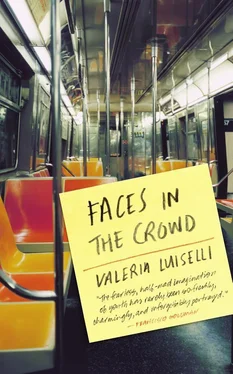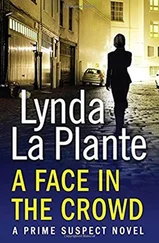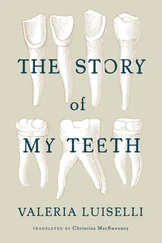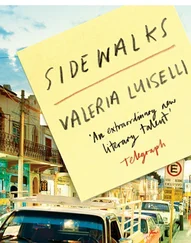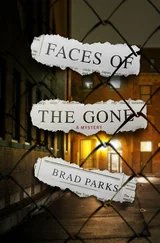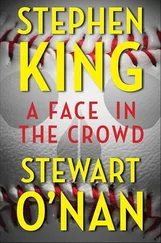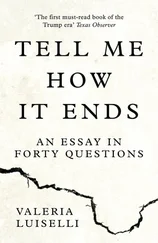*
We like to think that in this house there’s a ghost living with us and watching us. We can’t see it, but we believe it appeared a few weeks after we moved in. I was enormous, eight months pregnant. I could scarcely move. I used to drag myself like a sea lion along the wood floor. I set about unpacking the books, organizing them into alphabetical towers. My husband and the boy put them on the freshly painted shelves. The ghost used to knock the towers over. The boy christened it “Without.”
Why Without?
Just because he’s with and without a face, Mama.
The ghost opens and shuts doors. It turns on the stove. The house has a huge stove and lots of doors. My husband tells our son that the ghost bounces a ball against the wall. He is scared to death and immediately curls up in his father’s arms, until he swears that it was just a joke. Sometimes Without rocks the baby while I’m writing. Neither of us is frightened by this, and we know it’s not a joke. She’s the only one who really sees it; she smiles into the empty space with all the charm she’s capable of. She’s got a new tooth coming through.
*
In this neighborhood the tamale seller comes by at eight in the evening. We run to buy half a dozen sweet ones. I don’t go outside, but I whistle to him from the front door, putting two fingers in my mouth, and my husband races down the street to catch him. When he comes back, while he’s unwrapping the tamales, he says: I married a person who whistles. The neighbors also pass by our window and they wave to us. Even though we’re newcomers, they’re friendly. They all know each other. On Sundays they eat together in the central courtyard. They invite us, but we don’t join in the feast; we wave from the living room window and wish them a good Sunday. It’s a group of old houses, all a bit dilapidated or on the point of falling down.
*
I didn’t like sleeping alone in my apartment. I lived on the seventh floor. I would lend my apartment to people and seek out other rooms, borrowed armchairs, shared beds in which to spend the night. I gave copies of my keys to a lot of people. They gave me copies of theirs. Reciprocity, not generosity.
*
On Fridays, though not every Friday, Moby would turn up. He was the first to have the keys. We almost always met in the doorway. I’d be going out to the library and he would arrive to have a bath, because in his house, in a town an hour and a half from the city, there was no hot water. In the beginning, he didn’t stay to sleep and I don’t know where he did sleep, but he had baths in my tub and in exchange brought me a plant or cooked me something and put it in the fridge. He left notes that I would find in the evening, when I came back to eat dinner: “I used your shampoo, thanks, M.”
Moby had a weekend job in the city. He forged and sold rare books that he himself produced on a homemade printing press. Well-to-do intellectuals bought them from him at rather unreasonable prices. He also reprinted unique copies of American classics in equally unique formats. (Amazing the obsession gringos have for the unique.) He had an illustrated copy of Leaves of Grass, a manuscript of Walden he’d written out in pencil, and an audiotape of the essays of Ralph Waldo Emerson read by his Polish grandmother. But the majority of his authors were “Ohio poets of the twenties and thirties.” That was his niche. He’d developed a theory of hyperspecialization that was working well for him. Of course, it was not he but Adam Smith who had developed it, but he believed the theory was his own. I used to say: That’s Adam Smith’s pin theory. And Moby would reply: I’m talking about American Poets. The book he was trying to sell around that time was called Can We Hold Hands Out Here? He had ten copies and gave me one as a present. It was by a very bad poet. From Cleveland, Ohio, like Moby.
From time to time, before going back home, he came to my apartment to have a second bath and we’d eat the leftovers of whatever he’d cooked on Friday. We talked about the books he’d sold; we talked about books in general. Sometimes, on Sundays, we made love.
*
My husband reads some of this and asks who Moby is. Nobody, I say. Moby is a character.
*
But Moby exists. Or perhaps not. But he existed then. And another person who existed was Dakota, who came to my apartment for the same reason as Moby: she didn’t have a shower. She was the second person to have keys. She would turn up for a bath and sometimes stayed to sleep. She also gave me a set of her keys. She lived with her boyfriend in the basement of a big house in Brooklyn and for months they had been designing a bathroom they never built. I liked spending the night in that basement without a shower, wearing Dakota’s nightgowns, trying out her side of the bed.
Dakota worked at night, singing in bars and sometimes in the subway. Her features were like those of a silent-movie star, the eyes two enormous half moons, the mouth very small, haughty eyebrows. She and her boyfriend had a band. He played harmonica. He was from Wyoming — one of those pale gringos who, despite having almost transparent eyes, are handsome. He had a scar that ran from one side of his face to the other. The day I told him I was leaving the city for good because I’d become a ghost, he stroked my forehead. At the time I couldn’t tell if that was a reply. I wanted to touch his face, but didn’t dare underline the scar.
*
The boy comes back from school and shows me his knee:
Look at my cut.
How did that happen?
I was running around in the playground and a house fell on me.
A hose?
No, a house.
*
This house has a new fridge, a new piece of furniture next to the bed, new plants in terracotta pots. My husband wakes up at midnight from a nightmare. He starts to tell me about it while I dream of something else, but I listen from the beginning, as if I’d never fallen asleep, as if I’d been waiting for the start of that conversation the whole night. He says we’re living in a house that grows. New rooms appear, new things, the roof gets higher. The children are there, but always in another room. The boy is in danger and we can’t find the baby. At one side of our bed there’s a piece of furniture that unfolds and produces music. Inside he finds a tree, a dead tree but deeply rooted into the bottom of a box. In the logic of his dream, it’s the tree that produces the sense of doom in the house that grows; he tries to uproot it; the branches reach out and scratch his testicles. My husband cries. I hug him and then get up to go to the children’s room. I give the boy a kiss and check the crib to see if the baby is still breathing. She’s breathing. But I have no air.
*
I liked cemeteries, parks, the roof terraces of buildings, but most of all cemeteries. In a way, I was living in a perpetual state of communion with the dead. But not in a sordid sense. In contrast, the people around me were sordid. Moby was. Dakota too, sometimes. The dead and I, no. I had read Quevedo and internalized, like a prayer, perhaps too literally, the idea of living in conversation with the dead. I often visited a small graveyard a few blocks from my apartment, because I could read and think there without anyone or anything disturbing me.
*
I go back to writing the novel whenever I’m not busy with the children. I know I need to generate a structure full of holes so that I can always find a place for myself on the page, inhabit it; I have to remember never to put in more than is necessary, never overlay, never furnish or adorn. Open doors, windows. Raise walls and demolish them.
*
When she stayed in my apartment, Dakota did voice exercises with the bucket I used for mopping the floor. She would put her whole head inside and produce really piercing notes, like a badly tuned violin, like a moribund bird, like an old door. Sometimes, when I came back from a few days away, I used to find Dakota lying on the living room floor with the blue bucket beside her. Resting my back, she’d explain.
Читать дальше
